Description
ABSTRACT
A Discourse on the Quality of Distinctiveness and Statutory Requirements of Registration of Trademarks in Nigeria
Mark Mordi, FCIArb*
The objective of the article is to consider the provisions of Section 9 of the Trade Marks Act (TMA) and set forth the salient statutory requirements or legal hurdles facing a prospective trademark proprietor in an easy to understand manner. The article also seeks to set out in clear terms the responsibilities and duties, the TMA places on the Trademarks Registry, on a prospective trade mark applicant seeking registration of his trade mark and a party desirous of opposing the registration of a prospective trade mark (typically a prior registrant). The Article also seeks to deconstruct the concept of distinctiveness which quality serves as an alternative to the statutory requirements for registration.
Keywords: Trademark Proprietor, Distinctiveness, Trade Marks Act, Nigeria.
INTRODUCTION
The importance of trademarks cannot be overstated in our increasingly interconnected, transnational, virtual and digital market place. Trademarks are a business tool by which producers and manufacturers of goods and services brand their products to attract consumers’ attention and distinguish their goods and services from those of other manufacturers or traders in the market place.1In some cases, a particular trademark is a statement to the world that the product that bears this mark is of impeccable quality, for instance, a three-pointed star on an automobile.
Considering the importance of trademarks in everyday commerce, it is necessary, particularly for trademark practitioners, brand and business owners, to understand the statutory requirements for the registration of a trademark and the concept of distinctiveness which can in some instances qualifies as one of the requirements for registration under the Trade Marks Act to attain registration.
This discussion is all the more relevant because of the arcane language of the Trade Marks Act,2 which can pose challenges even for the initiated. This article, therefore, attempts to identify the statutory requirements that would make a potential trademark eligible for registration and deconstruct the concept of distinctiveness so that everyone, legal practitioner and business owner, can readily grasp its import its demands and benefits on those in the business space.
The article in the succeeding paragraphs will provide an overview of the section and deal with the statutory requirements necessary to register a trademark.
* Partner, Aluko & Oyebode, Lagos, Nigeria.
- See also the definition of Trademark in TA Blanco White and Robin Jacob, ‘Kerly’s Law of Trademarks and Trade Names, (12thedn, Sweet & Maxwell 1986) 4. The authors adopted the statutory definition under s 68(1) of the UK Trade Marks Act 1986.
- Trade Marks Act 1965 Cap T13 Laws of the Federation of Nigeria 2004 (TMA).

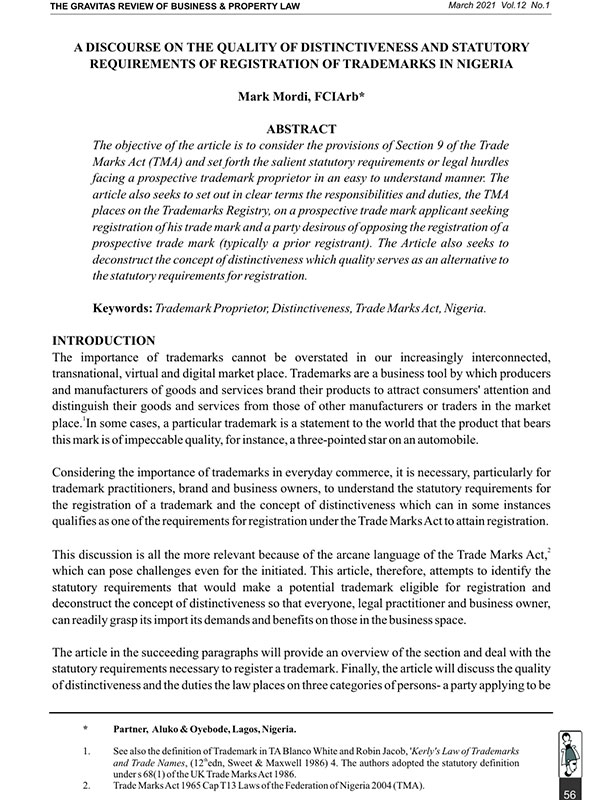
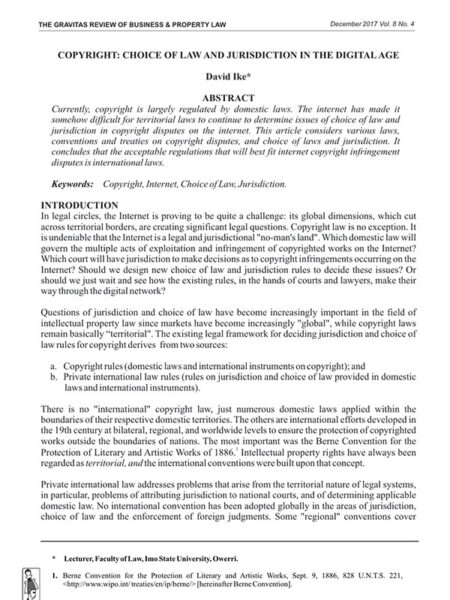
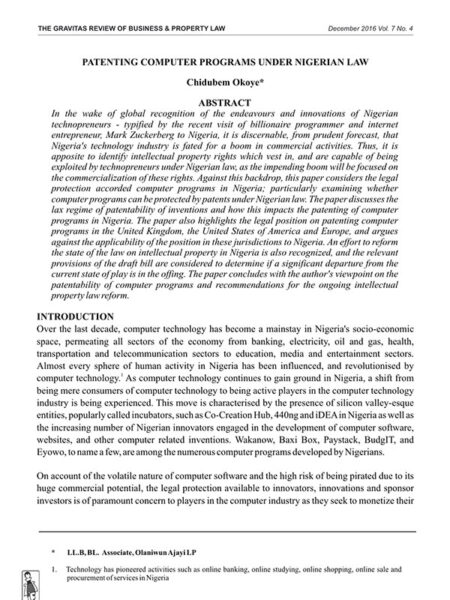
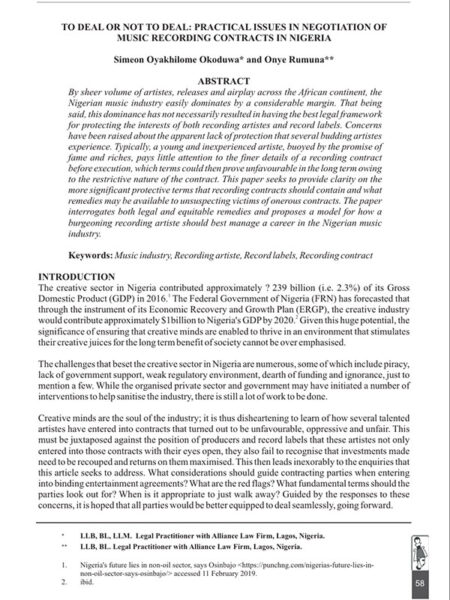
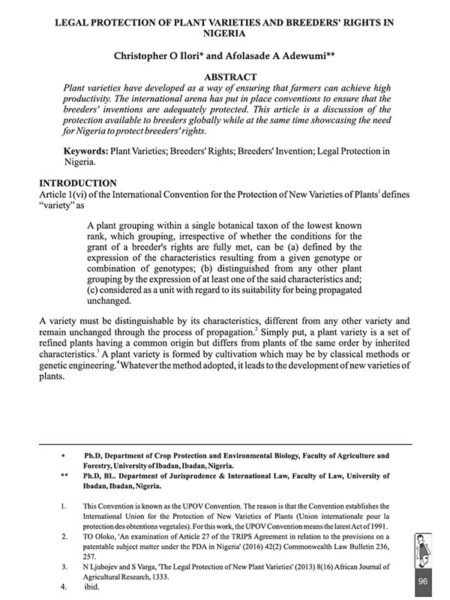


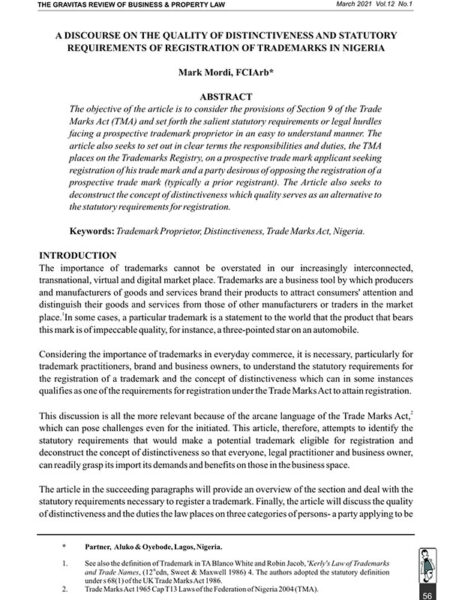
Reviews
There are no reviews yet.